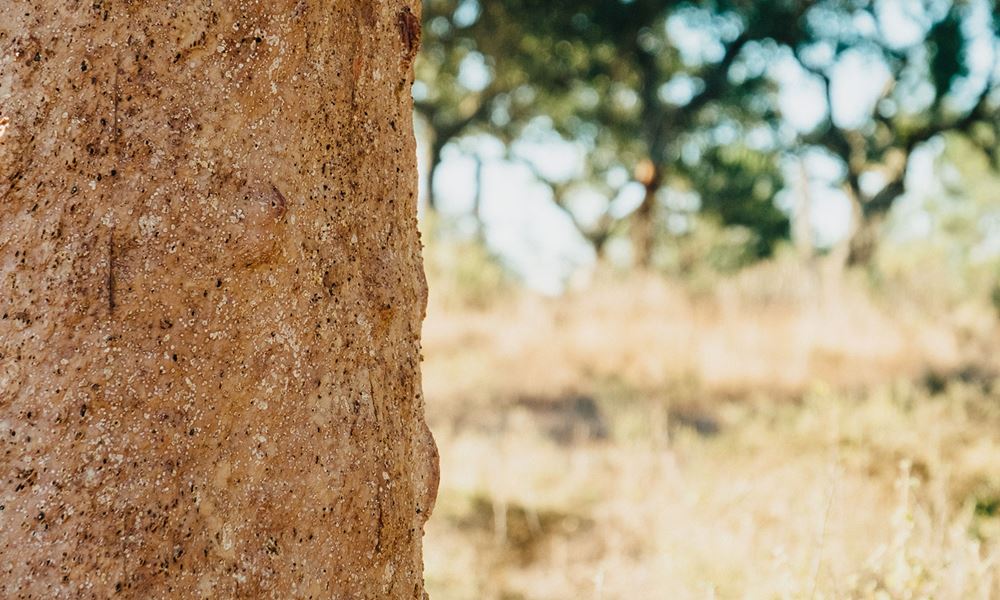The cork oak forests are an important environmental, social and economic pillar in Mediterranean countries.
They support a unique and fragile ecology which constitutes a habitat for rare and endangered species. They are the foundation of one of the 36 most important ecosystems in the world for preserving biodiversity - on par with Amazonia, the African Savanna and Borneo. Over 200 animal species and 135 plant species find ideal conditions for survival in the cork oak forest.
Environmental and social benefits
Perfectly adapted to the warm climate and arid soil, cork oak forests protect against erosion and resulting desertification. They are barrier against fire, due to the weak combustion of cork and undertake an important role in the regulation of the hydrological cycle. They also provide an essential contribution to the air that we breathe, by absorbing carbon dioxide, which without them would be released into the atmosphere.
Cork oak forests are natural CO2 retainers
It is estimated that per each ton of cork produced, the cork oak forest can sequester up to 73 tons of CO₂, a sizeable contribution for reducing greenhouse gas emissions, the main cause of climate change.
Due to its generosity, the cork tree becomes the main reason for countless thriving villages and communities all over the Mediterranean.
Over one hundred thousand people in southern Europe and north Africa directly and indirectly depend on these forests, according to the WWF.
These forests are a perfect example of the balance between preserving the environment and sustainable development - just the fact that no tree is felled during the stripping of the cork is a unique case in terms of sustainability. Cork Oak-related agriculture gives rise to several branches of an economy with a great future: it motivates the best paid agricultural activity in the world, plus a wide range of agricultural, forestry, forest grazing, hunting and economic activities. The cork industry is the driving force of this sustainable development, helps to maintain thousands of jobs and keeps people on their land.
Equally surprising is the fact that the cork oak increases its ability to absorb these gases during the natural regeneration process following stripping.
The more it is harvested, the more the cork tree protects the environment.
Equally surprising is the fact that the cork oak increases its ability to absorb these gases during the natural regeneration process following stripping.
The more it is harvested, the more the cork tree protects the environment.
In Portugal alone, which boasts the largest area of cork oak forest in the world, around 650 companies directly depend on this economy; approximately ten thousand jobs in factory work; 8300 jobs in forest harvesting and thousands of indirect jobs (catering, tourism, etc.).
Portugal's National Tree
The cork oak plays such an important role that at the end of 2011, it was unanimously declared by the Portuguese Parliament to be Portugal's National Tree and has been protected by law since the 13th century. In our opinion, few national symbols are as amazing as this one...
Would you like to know more about Corkeen?
Let us know your details and we'll get back to you.
